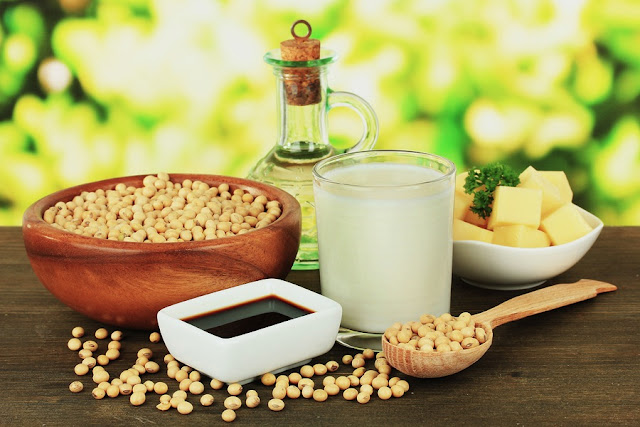The Familiar yet Unknown Vegetarian Glossary
 |
| Soy Products
It is no surprise that a vegetarian diet can include terms and foods
that are unknown to you. Given here is a glossary of terms that are common to
all vegetarian diets.
Casein: A milk
protein sometimes used in otherwise non-dairy products like soy milk, soy cheese
and non-dairy creamer
Legumes: An
excellent source of vegetable protein. Beans, lentils, peas and peanuts fall
under this wide umbrella of vegetable family
Nutritional Yeast: Grow on molasses,
sugar beets or wood pulp. These health supplements are an excellent source of
vitamin B12 and protein. Other sources of these nutrients can be retrieved from the link www.firsteatright.com.
Rennet: An enzyme
taken from the stomach of slaughtered calves. This enzyme is used in the
coagulation of cheese, but not all dairy cheese
Seitan (also called wheat gluten): A
vegetarian replacement for meat, made of protein (gluten) extracted from flour
Soybean: A legume,
which is an inexpensive and a great vegan source of protein and iron. Soybeans
are used to prepare the best vegan and vegetarian substitutes for meat, dairy
and eggs. Soybeans are nutritious and can be incorporated in a healthy diet plan.
Soy cheese: A
cheese-like product made from soybeans. Soy cheese comes in almost all the
varieties as dairy cheese — parmesan, mozzarella and cheddar. But not all soy
cheeses are vegan as some of them contain an animal protein called casein.
Soymilk: A
milk-like protein made from soybeans, with the same protein content as cow’s
milk but with lesser fat content. Again, here, some soy milks are not vegan as
they contain casein in them.
Tempeh: A
replacement for meat, made from fermented soybeans
Textured Vegetable Protein: Made from
soy flour, TVP is predominantly used in vegetarian restaurants as a substitute
for ground beef
Tofu: Finest replacement for meat,
eggs and cheese made using curdled soymilk and pressed into blocks. Tofu, an
excellent source of protein, can be eaten fresh as it is or cooked into tasty
dishes.
Types and uses of tofu:
|


Comments
Post a Comment